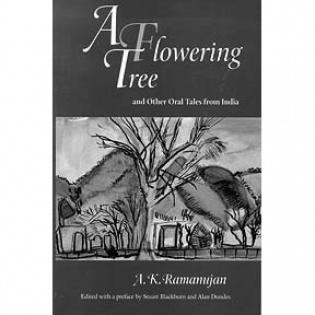Indian Tale: A man and wife receive a visitor one rainy night. He praises them for welcoming him, and, little by little, teaches them how to share what they have. Miserliness is a habit that can be unlearned.
Filter by subjects:
Filter by grades:
Filter by audience:
Filter by issue area:
Filter by content type:
Filter by resource type:
resource search
A Mexican Tale: A lazy man helps a man with a runaway horse and in return he is amply rewarded.
Jewish Tale: A childless woman volunteers at a hospital where she cares for a woman with no family. When the woman lies dying she promises her friend she will send her a baby. Shortly afterwards, the childless woman has a child of her own. How do we understand the timing of the gifts that come into our lives?
Central Asian Tale: A poor woodcutter is swindled by a wealthy man, but his daughter outwits the man by telling a greater lie. Wit and intelligence are more useful than wealth.
Central Asian (Khirghiz) Tale: The khan (leader) gives instructions on who is to follow him at his death. His white falcon lands on the shoulder of a poor shepherd, who turns out to be a wise and just leader. The shepherd chooses a wife by declaring a contest of riddles. Wisdom and kindness are not the province of the elite alone.
Korean Tale: A young boy greedily demands stories from everyone he meets, stuffing them into a “story-bag” and never sharing them. When he grows up and is about to be married, a servant overhears the stories plotting to take revenge. Stories are gifts that are meant to be shared.
A Chinese Tale: A woman’s sons set out in search of the cherished silk brocade she has woven. When the two eldest sons refuse to follow the instructions to retrieve the stolen brocade, the youngest son fearlessly accepts the challenge. A magical reward is given to him and his mother.
A Palestinian (Arab) Tale: A poor woodcutter drops a fava bean down a well and starts moaning. The spirits who live in the well give him a series of magic objects to keep him quiet. He loses the first two to his neighbors, but then regains them. Even foolishness is sometimes rewarded with useful gifts.
A Tale from Asia: A young man grows up to be a harpooner on a whaling ship. One day he suddenly discovers himself to be a whale—the very one he was setting out to kill. After this experience Eizo gives up whaling and becomes a Zen priest. If we could fully imagine the lives of animals we hunt and kill, (or raise and slaughter) would we not change our attitudes towards living beings?
Indian Tale: A parrot remains loyal to the fig tree where he makes his home, although he is being tested. The god Shaka has withered the tree to test the parrot's fidelity. How does friendship endure the tests of time?









